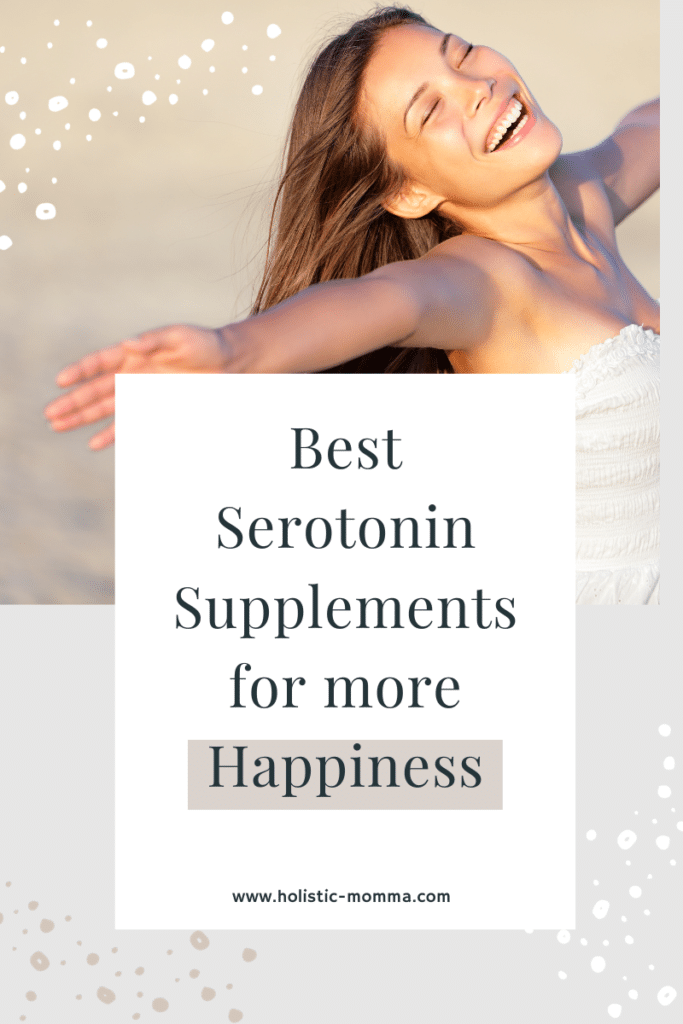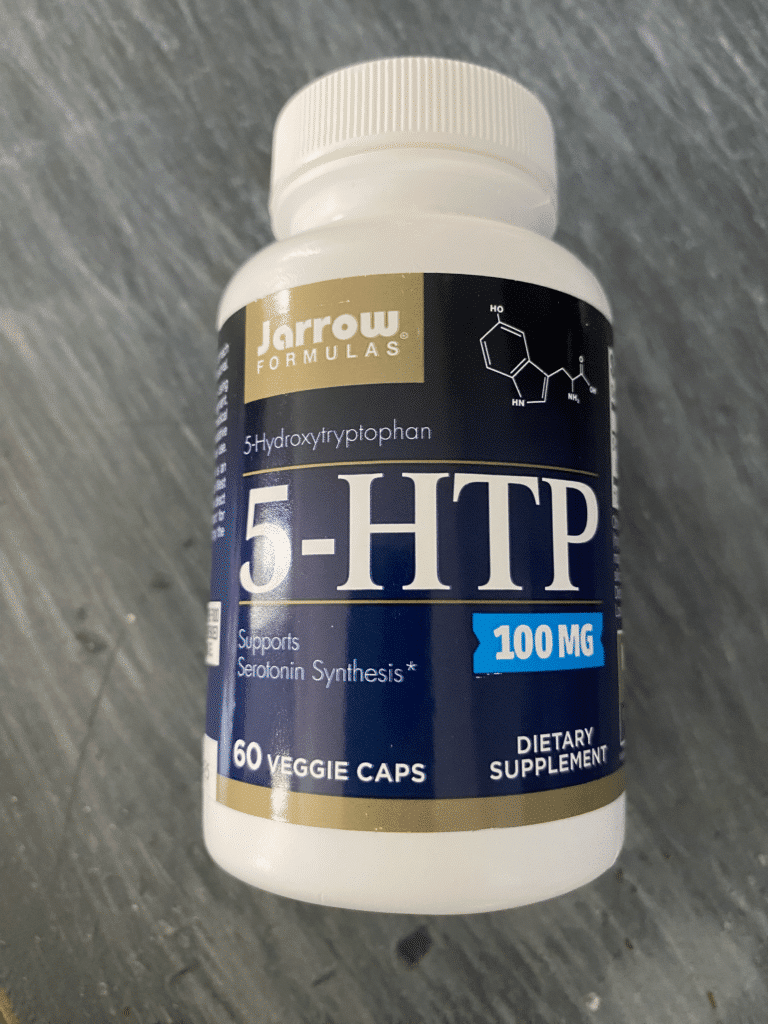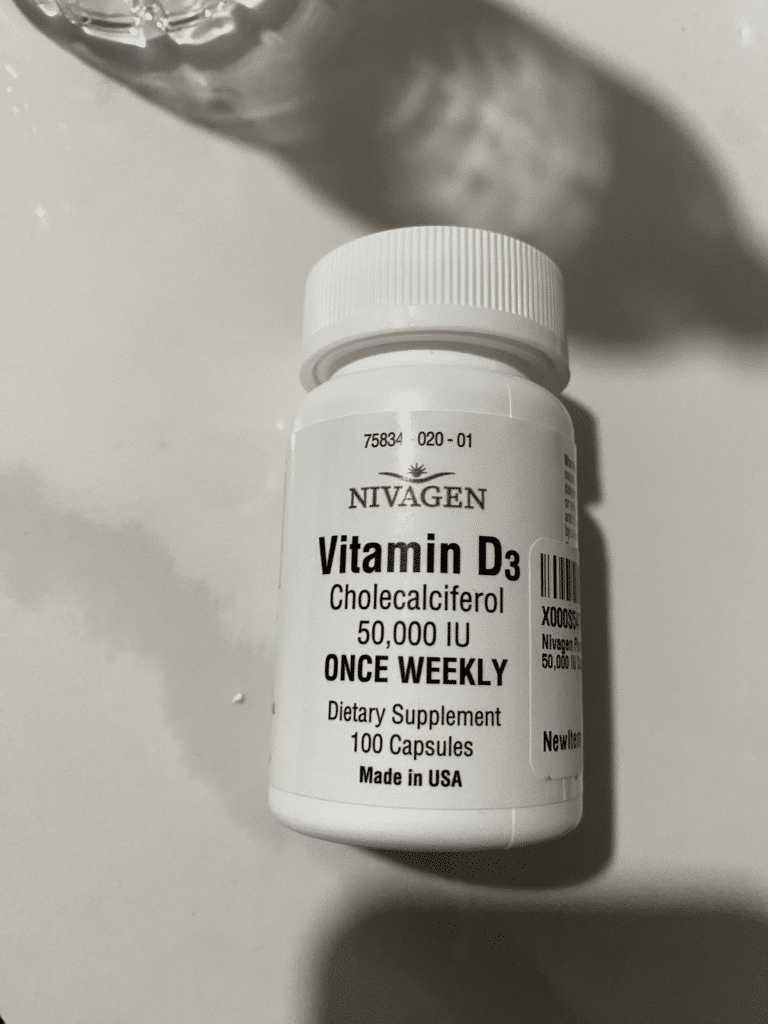How to Increase Serotonin Levels with the Best Serotonin Supplements
Table of Contents
Introduction
Between 80-90% of your serotonin is produced in your gut. The enteric nervous system is found in your digestive system. Where there are gut issues such as leaky gut, poor diet, or ongoing stress, your body’s ability to secrete serotonin is decreased.
This is why we have taken the time to recommend the best serotonin supplements to help you improve your sleep, mood, and overall happiness.
Serotonin is a precursor for natural melatonin production, which is a contributing factor to individuals with anxiety and depression having sleep issues.

Understanding the Importance of Serotonin
Serotonin plays a crucial role in our overall well-being and mental health. It is a neurotransmitter that regulates mood, appetite, and sleep, among other functions.
Maintaining balanced serotonin levels is essential for optimal emotional and physical health. In this article, we will explore the significance of balanced serotonin levels and discuss the best serotonin supplements available to help increase serotonin production naturally.
The Role of Serotonin in Mental Health
Serotonin is vital in mental health, influencing mood, emotions, and overall well-being. Imbalances in serotonin levels have been linked to various mental health conditions, including depression and anxiety. Increasing serotonin levels through the best serotonin supplements can help promote better mental health and improve overall quality of life.
Disorders such as Autism Spectrum Disorder (ASD), Attention-Deficit Hyperactive Disorder (ADHD), bipolar, schizophrenia, and depression have been shown to have low levels of serotonin.
Serotonin Supplements
Serotonin is vital in mental health, influencing mood, emotions, and overall well-being. Imbalances in serotonin levels have been linked to various mental health conditions, including depression and anxiety. Increasing serotonin levels through the best serotonin supplements can help promote better mental health and improve overall quality of life
Exploring the Benefits of Serotonin Supplements
Supplements are natural compared to medications, resulting in fewer side effects.
Supplements that help increase serotonin production can provide a range of benefits for mental health. They can help alleviate symptoms of depression and anxiety, improve mood and emotional well-being, enhance cognitive function, and promote better sleep quality.
Additionally, serotonin supplements may support overall brain health and contribute to a balanced and positive mindset.
It is important to note that while these supplements can be beneficial, it is always recommended to consult with a healthcare professional before incorporating any new supplement into your routine to ensure it is safe and appropriate for your individual needs.
How to Increase Serotonin Levels with the Best Serotonin Supplements
Maintaining balanced serotonin levels is essential for optimal emotional and physical health. In this article, we will explore the significance of balanced serotonin levels and discuss the best serotonin supplements available to help increase serotonin production naturally.
Identifying the Best Serotonin Supplements
1. 5-HTP
The amount of 5-HTP able to get to the central nervous system controls how much of it is converted to serotonin. 5-HTP (5-hydroxytryptophan) comes from tryptophan, an amino acid. 5-HTP does not come from food, but its precursor, tryptophan, does.
5-HTP can be made from the African plant Griffonia simplicifolia.
5-HTP can improve symptoms of fibromyalgia because low serotonin is often a contributing factor to anxiety, fatigue, and morning stiffness. Research shows that 200-400mg of serotonin at night can increase serotonin levels and improve sleep. Sticking to this dose for 6-12 weeks is recommended to be most effective.
I recommend the Jarrow 5-HTP 100mg that I take!

2. L-Tryptophan

L-Tryptophan is an amino acid that is converted to 5-htp. The “L” isomer helps L-tryptophan cross the blood-brain barrier, enabling the brain to utilize it. Tryptophan is stored in limited amounts in the body and is a precursor to serotonin synthesis.
Adults typically take 900mg-1,000mg per day, including obtaining it through their diet and supplementation.
Only 3% of dietary tryptophan is used for serotonin synthesis in the body and 1% of dietary tryptophan is used to synthesize serotonin in the brain.
L-tryptophan is commonly found in oats, bananas, dried prunes, turkeys, peanuts, bread, chicken, and chocolate.
Melatonin is a hormone synthesized in the serotonin/tryptophan pathway, and it regulates digestive processes, gastrointestinal motility, and reproductive and immune systems.
Melatonin is naturally produced by the pineal gland when it is dark, and it regulates the circadian rhythms. Your circadian rhythms can make you feel off when you wake up if you sleep during the day or at times that do not sync with them.
Using a sleep tracking device such as a Fitbit Watch (this is the one I have), you can track your sleep, steps, heart rate, and more to get an idea of what to do to improve your sleep and mood.

3. Omega 3s

EPA increases serotonin and reduces inflammatory signals such as E2 prostaglandins that can prevent serotonin release. EPA reduces brain inflammation caused by inflammatory cytokines that can cross the blood-brain barrier.
This study claims that depression is strongly influenced by brain inflammation and the suppression of serotonin, which makes Omega 3s that much more important to consume to reduce brain inflammation.
DHA makes serotonin receptors more accessible to serotonin. DHA contributes to 30% of the fatty acid content in the brain, and it keeps the brain’s fluidity. The lipid membrane composition highly influences serotonin. When there is less membrane fluid, the serotonin receptor has a more difficult time binding to its receptor.
Natural Factors Omega 3s give you a very high dose of both EPA and DHA, making them a brain-supportive supplement!
A reduced dietary intake of omega-3 fatty acids EPA and DHA during brain development causes a decreased serotonin synthesis, storage, release, and receptor function. Supplementing with omega 3s during pregnancy increased serotonin levels in rats’ prefrontal cortex and reduced stress-induced serotonin depletion.
4. Vitamin D
Vitamin D converts tryptophan to serotonin, and low vitamin D contribute to low serotonin levels.
Vitamin D deficiency can exacerbate deficits in executive functioning, which is a significant concern in individuals with ADHD.
A research study showed vitamin d supplementation within the first year of life decreased the risk of schizophrenia by 77%.
Vitamin D controls around 900 genes and is a regulator of serotonin. Vitamin D helps with the conversion of tryptophan into serotonin.
Vitamin D is absorbed from the sun through the skin and can be consumed in a capsule or topical cream. Low Vitamin D levels have been correlated to ASD, ADHD, bipolar disorder, schizophrenia antisocial behavior and impulsive behavior.
Individuals who have polymorphisms of the TPH gene which can reduce serotonin levels and contribute to bipolar disorder or schizophrenia.

Above is the vitamin D that I take which is 50,000 I.Us. Taking this weekly is a great way to raise your vitamin D, if you decide to take it more than once per week be sure to do blood work and consult with your doctor.
Vitamin D plays a role in modulating the severity of genetic factors that impact brain serotonin levels.
Vitamin D deficiency in gestation can contribute to impulsive behaviors later in life as well as behavioral abnormalities and impaired information processing.
Natural Methods to Boost Serotonin
Incorporating Serotonin-Boosting Foods into Your Diet
Foods such as bananas, walnuts, spinach, and salmon are rich in nutrients that promote serotonin synthesis. By including these foods in your meals, you can support a healthy serotonin balance.
Exercise and Serotonin: Understanding the Connection
Exercise plays a crucial role in increasing serotonin levels in the body. Physical activity stimulates the release of serotonin, a neurotransmitter that regulates mood and promotes feelings of well-being. By engaging in regular exercise, individuals can naturally boost serotonin production, improving mood and overall mental health.
In addition to exercise, other natural methods boost serotonin levels. Additionally, stress-reducing techniques like meditation and deep breathing exercises can help regulate serotonin levels and promote a sense of calm and relaxation.
Lastly, getting enough sunlight can also increase serotonin production in the body, so spending time outdoors can benefit your mood.
Hobbies
Engaging in enjoyable hobbies has been shown to naturally boost serotonin levels. Activities such as painting, playing musical instruments, gardening, or even cooking can stimulate the brain and promote the release of serotonin, leading to improved mood and overall well-being. So, find a hobby that brings you joy and make it a regular part of your routine to naturally increase serotonin levels.
Engaging in hobbies that involve physical activity, such as hiking, dancing, or yoga, can also contribute to the release of serotonin in the body. These activities not only boost serotonin levels but also provide additional benefits like improved physical fitness and stress reduction.
In addition, practicing mindfulness and meditation can have a positive impact on serotonin levels by promoting relaxation and reducing anxiety.
Taking time for self-care activities, such as taking long baths, getting massages, or listening to calming music, can also support serotonin production and enhance your overall mood. Remember to prioritize activities that bring you joy and help you unwind to naturally increase serotonin levels.
Conclusion
While natural methods such as exercise, stress reduction techniques, and exposure to sunlight can help increase serotonin levels, taking serotonin supplements can provide an additional boost to support mental and physical health. These supplements can be a convenient and effective way to ensure optimal serotonin levels, promoting a balanced mood and overall well-being.
Originally posted 2023-11-23 06:34:53.
Megan Santiago
Latest posts by Megan Santiago (see all)
- How to Find a Trauma Therapist in Tampa - September 30, 2024
- Get Your Child to Listen: A Clear-Cut Way To Feel Heard - March 10, 2024
- Help With Bills – How to Get Financial Assistance - March 10, 2024
